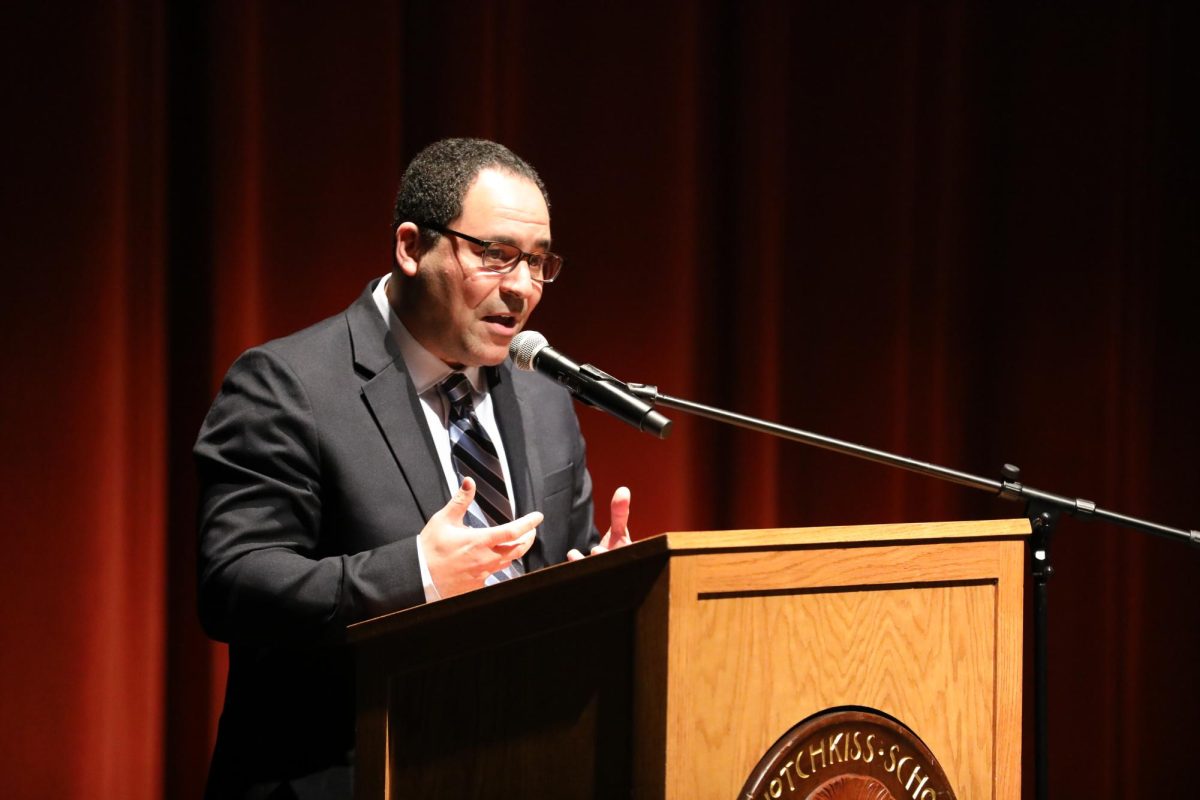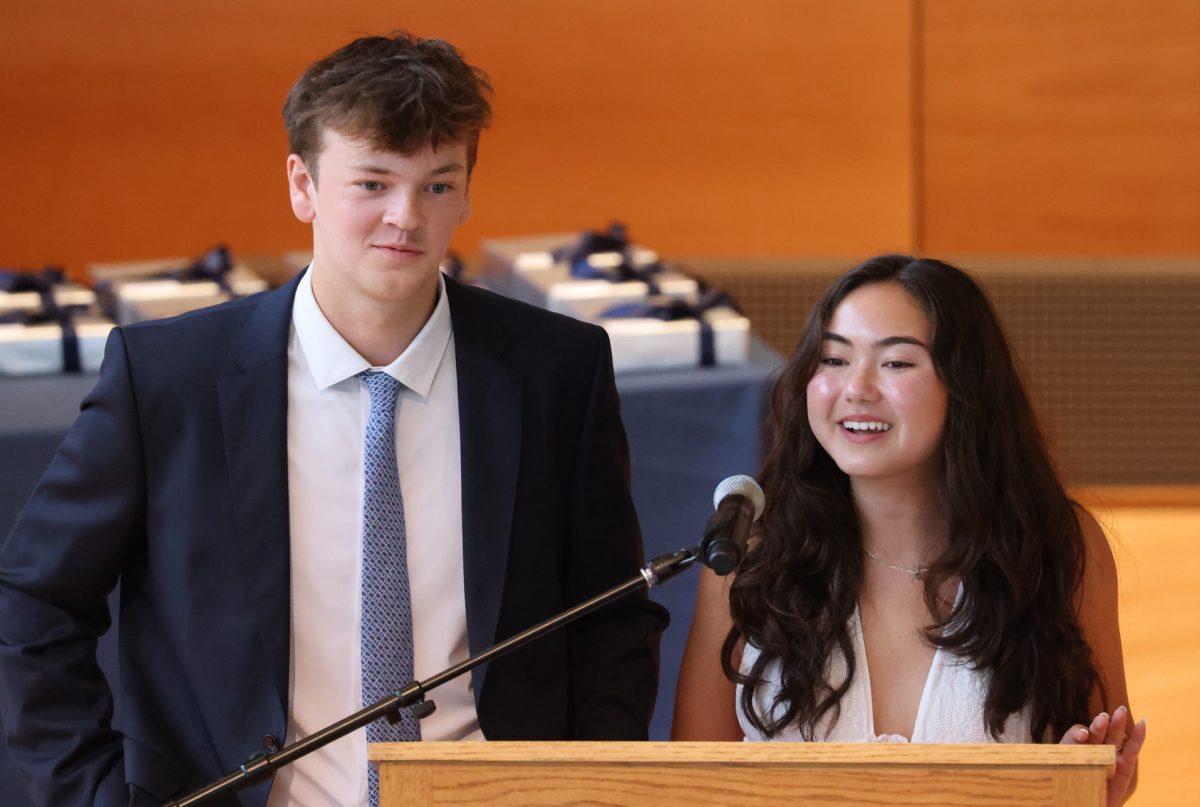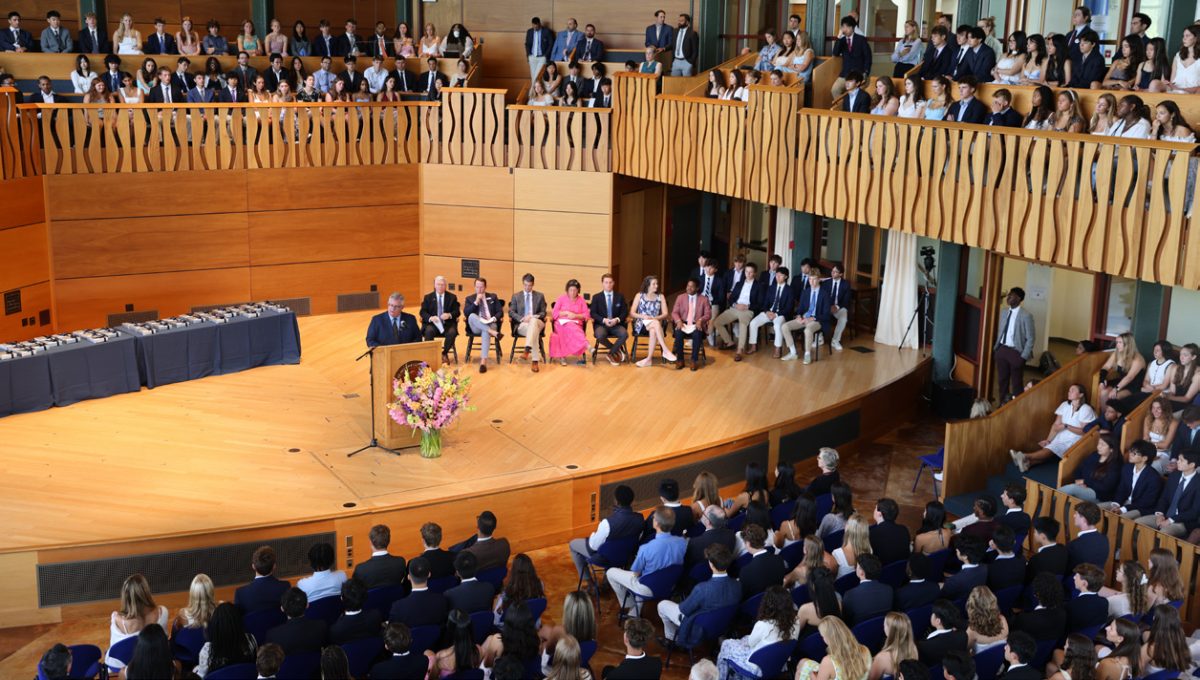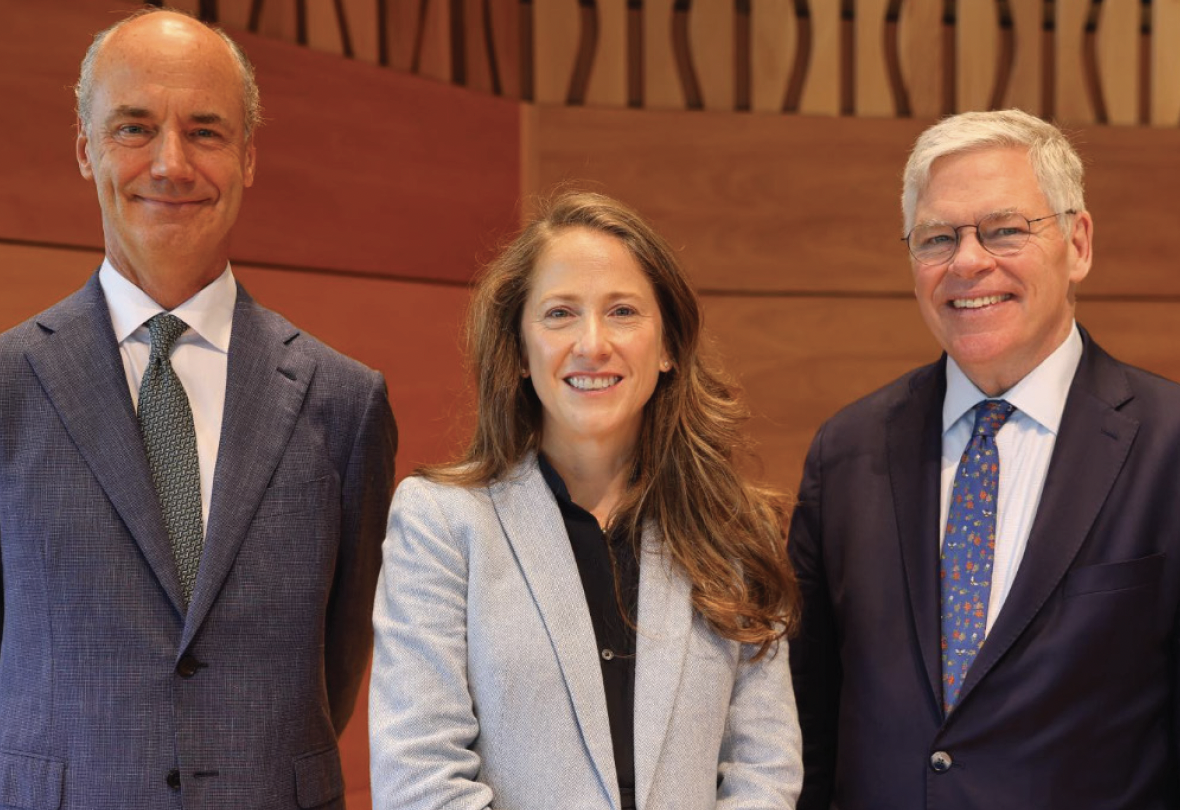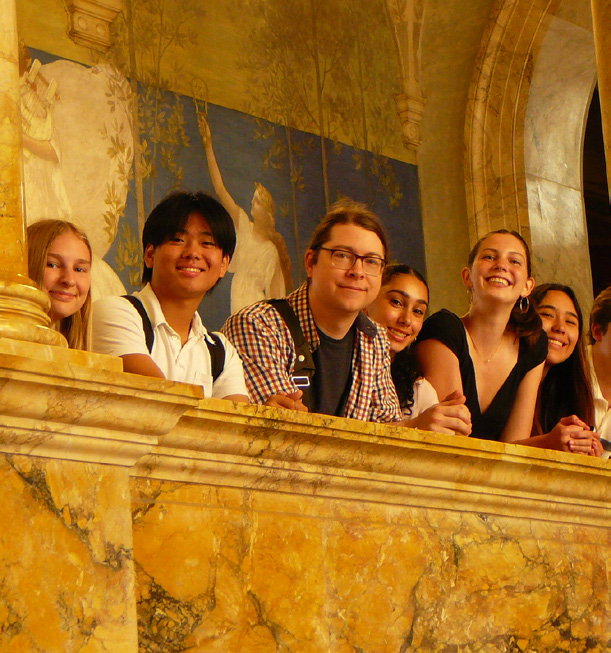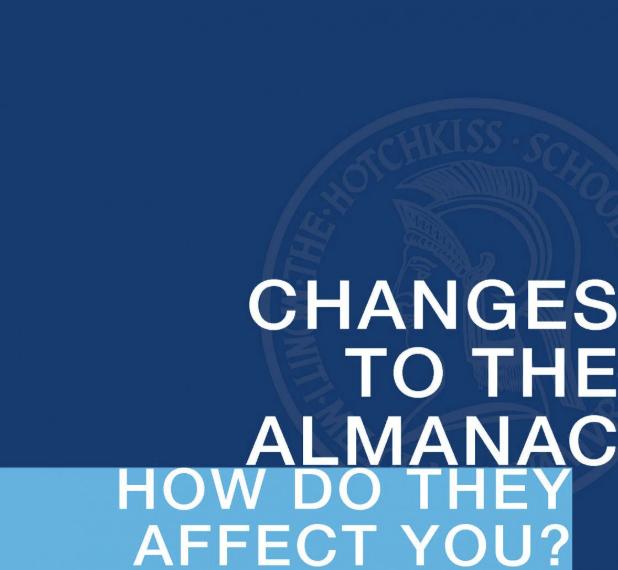On Tuesday, February 27, the school welcomed Dr. Nicholas Gaffney, assistant professor of African American and modern U.S. history at the U.S. Naval Academy as a speaker for Black History Month.
Dr. Gaffney’s speech focused on the contributions of the Harlem Renaissance to the photography, poetry, music, and culture of the United States.
Throughout his speech, Dr. Gaffney spoke about the founding of Harlem as a Black cultural mecca by Black immigrants arriving from the South during the Great Migration of the early twentieth century.
He then moved on to address the development of artistic movements in Harlem, specifically jazz, literature, and poetry, noting several prominent figures who were influenced by the Harlem Renaissance, including Zora Neale Hurston, Countee Cullen, and Claude McKay.
Dr. Gaffney read a poem by Cullen, an often-overlooked poet, call “Yet Do I Marvel,” which compares Black American’s journey to the struggle of Sisyphus forever rolling a stone uphill. He then shared a jazz piece by famed trumpeter Duke Ellington called “Harlem Air Shaft” that aimed to replicate the vibrant sounds heard in the streets of Harlem.
Dr. Lisanne Norman ’94, instructor in humanities and social sciences and associate director of DEI, said, “The confluence of people, art, and politics that made for such a rich explosion in African American and American history must be understood as the basis for the Civil Rights movement that we see in the late 1950s and ’60s. This pivotal moment in American history is not as studied and celebrated as it should be, so I wanted our community to be exposed to it during Black History Month.”
Students had the opportunity to discuss topics with Dr. Gaffney in the Student Center after the talk. Zayda Gordon ’25, co-head of the Black Student Union, said, “I’ve heard that many people appreciated the informative nature of the talk and the chance to learn more about the history of the beautiful, flowering culture of the Harlem Renaissance. There was some desire for the addition of a more personal perspective to the talk, but nevertheless, it was still well enjoyed.”

